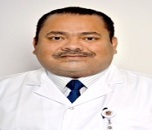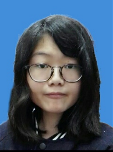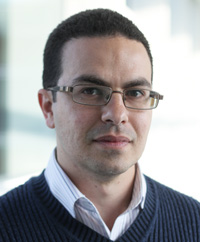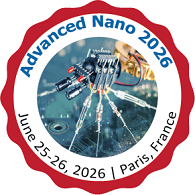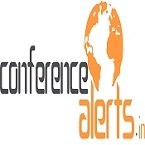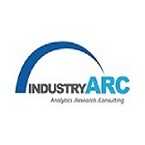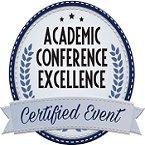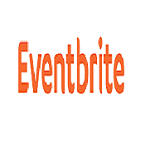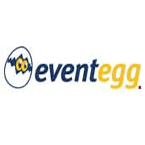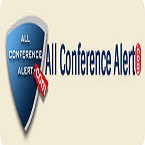Sessions and Tracks
Quantum-Driven Nano Devices for Next-Generation Computing
This session explores how quantum behavior at the nanoscale is revolutionizing electronic device architecture. Speakers will highlight breakthroughs in qubit stability, quantum tunneling control, and ultra-low-power quantum circuits. Discussions will include fabrication techniques enabling scalable quantum nanostructures. Novel error-correction methods and decoherence-mitigation strategies will be examined. Attendees will gain insights into quantum-enhanced processors, memory systems, and logic gates. Case studies will demonstrate real-world early applications. The session concludes with a roadmap for quantum-nano integration in commercial electronics.
2D Materials in Nano Electronics: Beyond Graphene
This session focuses on the expanding universe of 2D materials such as MoS?, WS?, phosphorene, and MXenes. Researchers will discuss their electrical, mechanical, and optical advantages for nanoscale circuitry. Emphasis will be on transistor miniaturization, transparent electronics, and flexible nano-devices. Manufacturing challenges, stability enhancement, and doping strategies will be covered. Presentations include advanced simulation tools predicting performance at atomic levels. Emerging applications in wearable sensors, solar cells, and neuromorphic chips will be showcased. The session highlights the future of engineered atomic-thin materials.
Nano-Enabled Energy Harvesting and Storage Systems
This session examines nanoscale innovations driving high-efficiency batteries, supercapacitors, and energy harvesters. Experts will discuss nanostructured electrodes, solid-state electrolytes, and quantum-boosted charge transport. A focus will be placed on extending lifecycle, reducing losses, and achieving ultra-fast charging. Presentations highlight self-powered nano electronics for IoT environments. Real-world prototypes such as nanogenerators and hybrid storage modules will be featured. The session explores sustainability, recyclability, and green-nanotech strategies. Attendees will gain a deep understanding of next-generation energy infrastructures.
Nanophotonics, Plasmonics & Light-Manipulating Nano Devices
This session dives into the engineering of nanoscale structures that manipulate light with extreme precision. Speakers will explore plasmonic nanoparticles, photonic crystals, and meta-surfaces. Key topics include nano-lasers, ultra-fast optical switches, and light-guided circuits. Cutting-edge research on energy-efficient optical computing will be presented. Applications in imaging, communications, biosensing, and security devices will be reviewed. Fabrication advancements for high-resolution nano-optical components will be discussed. The session outlines the convergence of photonics with nano electronics.
Carbon Nanotube & Nanowire Electronics for Ultra-Dense Circuits
This session examines the potential of carbon nanotubes (CNTs) and semiconductor nanowires for next-generation device miniaturization. Talks will cover high-mobility transport, reliability improvements, and CNT-based transistor arrays. Fabrication alignment, defect reduction, and large-scale integration strategies will be highlighted. The session also explores nanowire photodetectors, memory devices, and flexible electronics. Researchers will present circuit-level simulations predicting performance gains. Applications in 5G/6G hardware and micro-robotics will be showcased. Attendees will understand the path toward CNT-driven nanoelectronics.
Nanotechnology for Smart, Adaptive, and Self-Healing Materials
This session focuses on materials engineered at the nanoscale to sense, adapt, and repair themselves. Presentations include nano-reinforced composites, smart coatings, and autonomous healing polymers. Key mechanisms such as nanoparticle-triggered chain reconstruction will be explored. Real-world uses in aerospace, construction, defense, and robotics will be highlighted. Manufacturing challenges and durability analysis will be discussed. Cutting-edge case studies on responsive materials in consumer electronics will be presented. The session emphasizes reliability in extreme conditions.
Nano Sensors, Nano Biosensors & Ultra-Sensitive Detection
This session explores the rapid evolution of nano-enabled sensing platforms. Experts will discuss high-precision chemical, biological, and environmental nanosensors. Novel transduction mechanisms, nano-electrode engineering, and quantum sensitivity will be showcased. Emphasis will be on medical diagnostics, on-chip monitoring, and environmental surveillance. Speakers will examine integration with smartphones, wearables, and IoT nodes. Fabrication strategies for low-cost mass production will be covered. Attendees will learn about the future of real-time nanosensing ecosystems.
Neuromorphic Nano Electronics & Brain-Inspired Architectures
This session highlights nanoscale architectures that mimic human brain functionality. Discussions include memristors, nanowire networks, and synaptic nano devices. Researchers will present advances in neural-inspired learning circuits and low-power cognitive chips. Fabrication methods improving variability and endurance will be examined. Applications in AI hardware acceleration, robotics, and autonomous systems will be discussed. Real-world prototypes demonstrating adaptive behavior will be shown. The session addresses performance metrics for neuromorphic nano systems.
Nanotechnology in Space, Aerospace & Extreme Environments
This session investigates nanomaterials engineered for radiation resistance, thermal management, and structural reinforcement. Topics include nano-coatings for spacecraft, nano-electronics for extreme temperatures, and lightweight nanocomposites. Presenters will highlight nano-shielding against cosmic rays and atomic oxygen. Applications in satellites, planetary exploration, and aerospace propulsion will be discussed. Manufacturing compatibility with aerospace standards will be explored. Data from recent missions using nano components will be presented. The session envisions the future of nano-enabled space systems.
Nano Robotics & Molecular-Scale Machines
This session showcases advancements in nano-bots, molecular actuators, and programmable nano machines. Speakers will explore propulsion mechanisms such as catalytic, magnetic, and acoustic drives. Applications in targeted drug delivery, environmental remediation, and micro-assembly will be featured. Key challenges such as precision control, communication, and bio-compatibility will be addressed. New fabrication strategies for scalable nano-robot production will be presented. Demonstrations of bio-hybrid nano-robots will be included. Attendees will gain insight into future nano-robotic ecosystems.
Advanced Nano Fabrication, Lithography & Patterning Technologies
This session examines the techniques that enable atomic-level precision in manufacturing. Presentations cover EUV lithography, nano-imprint lithography, self-assembly, and molecular patterning. Advances improving resolution, throughput, and defect mitigation will be highlighted. Speakers will discuss cost-effective approaches for large-area nano structuring. Case studies include chips, sensors, optical components, and MEMS devices. Integration challenges with existing semiconductor lines will be explored. The session forecasts future fabrication paradigms beyond traditional lithography.
Nano Electronics for 5G, 6G & Next-Gen Communication Networks
This session focuses on nanoscale components enabling ultra-fast, low-latency communications. Topics include nano RF transistors, high-bandwidth interconnects, and energy-efficient signal modulation. Nanophotonic solutions for optical data transfer will be discussed. Presenters will explore integration into antennas, base stations, and wearable communication devices. System-level benefits for IoT, autonomous mobility, and smart infrastructure will be highlighted. Testbed evaluations from experimental deployments will be shared. The session maps nanotechnology’s role in future wireless ecosystems.
Nano-Enabled Flexible, Stretchable & Wearable Electronics
This session highlights breakthroughs in ultra-thin circuits, nano-inks, and soft electronic substrates. Researchers will discuss stretchable conductors, graphene-based films, and polymer-nanocomposites. Emphasis will be on durability under deformation and long-term stability. Applications include smart textiles, medical patches, AR/VR devices, and electronic skins. Manufacturing techniques such as roll-to-roll nano printing will be featured. The session includes demonstrations of next-generation wearable prototypes. Attendees gain insights into user-centric flexible nano devices.
Bio-Nanotechnology & Nano Interfaces with Living Systems
This session explores the interface of nanotechnology with biology and living tissues. Key areas include nano-drug carriers, nano-scaffolds, and biomimetic surfaces. Presentations cover immune interaction, toxicity analysis, and targeted therapeutic delivery. Nano-enabled tools for gene editing, imaging, and regenerative medicine will be discussed. Manufacturing reproducibility and clinical translation challenges are emphasized. Case studies highlight nano-therapeutics advancing into human trials. The session bridges engineering, biology, and medicine at the nanoscale.
Nano Electronics Security, Privacy & Anti-Tamper Technologies
This session examines nano-enabled security measures for future hardware systems. Topics include nano-patterned security keys, quantum-secure circuits, and anti-counterfeit nanomaterials. Researchers will present tamper-proof chip architectures and nanoscale authentication methods. The session explores threats in IoT, defense, and industrial electronics. Fabrication challenges and standardization efforts will be discussed. Real-world demonstrations of secure nano hardware will be included. Attendees will understand nano-level strategies for robust electronic security.
Artificial Intelligence for Nano Design & Characterization
This session focuses on AI-driven modeling, simulation, and material discovery at the nanoscale. Topics include machine-learning algorithms predicting nano device behavior and optimizing fabrication parameters. High-throughput characterization using autonomous analysis tools will be highlighted. AI-enhanced microscopy and defect-recognition workflows will be presented. Attendees will explore data-driven approaches accelerating nano research. Real examples of AI-discovered nanomaterials will be shared. The session envisions a future of intelligent nano engineering platforms.
Sustainable Nanotechnology & Green Nano Manufacturing
This session explores environmentally responsible approaches to nanomaterial production. Presentations include biodegradable nanocomposites, eco-friendly synthesis routes, and waste-minimizing fabrication. Speakers will highlight lifecycle assessments and toxicity-reduction strategies. Applications in renewable energy, water purification, and pollution control will be discussed. Industrial case studies demonstrate sustainable nano implementation. Regulatory frameworks and global guidelines will be reviewed. The session promotes eco-conscious nano innovation.
High-Performance Nano-MEMS & Nano-Actuators
This session focuses on nano-electromechanical systems enabling high-precision sensing and actuation. Topics include ultra-sensitive resonators, nano-relays, and piezo-electric nano-actuators. Researchers will examine energy consumption, reliability, and integration with CMOS platforms. Applications span biomedical devices, micro-robotics, and aerospace instrumentation. Presentations include fabrication breakthroughs enhancing performance under stress. Real-world prototypes and testing data will be shared. The session outlines future industrial applications of nano-MEMS.
Spintronics, Magnetoresistance & Nano Magnetic Devices
This session explores spin-based electronics enabling memory and logic beyond charge-driven systems. Discussions include spin-transfer torque, magnetic tunnel junctions, and skyrmion-based nano devices. Researchers will highlight advances in non-volatile memory and ultra-fast switching. Nano magnetic materials with engineered anisotropy will be covered. Applications in AI accelerators and low-power computing will be addressed. Challenges in fabrication, stability, and scalability will be examined. The session presents the future of spin-nano electronics.
Future Trends in Nano Electronics & Industry Translation
This closing session brings together innovators to discuss commercialization pathways for nano breakthroughs. Speakers will highlight industry adoption trends, startup opportunities, and tech-transfer strategies. Roadblocks such as cost, manufacturing compatibility, and regulatory compliance will be analyzed. Case studies of successful nano-to-market transitions will be shared. The session also explores global investment landscapes and industrial collaborations. Attendees will learn how academic research accelerates into real-world products. It concludes with future forecasts shaping the nano electronics industry.

